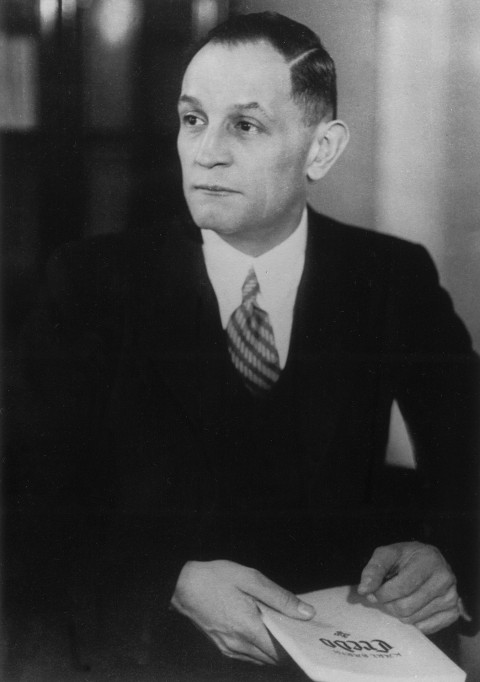Martin Niemöller before the Nazis finally came for him
The German pastor opposed Hitler—eventually.

On a wintry November day in 1945, a simply dressed, white-haired woman huddled beside a gaunt, somber man as they read a plaque affixed to a tree in southern Germany: “Here in the years 1933–1945, 238,756 people were cremated.” Overwhelmed, the woman leaned into her husband for support. He was the Protestant pastor Martin Niemöller, famous for defying Hitler, and she was Else Niemöller, his wife of 27 years. They were standing at the entry of the crematoria at Dachau concentration camp outside Munich, where he had been jailed from July 1941 to April 1945. His years in Dachau had been preceded by four years of imprisonment in Sachsenhausen concentration camp.
Even more than the number of people murdered, Niemöller was taken aback by the plaque’s dates: 1933–1945. Dachau had commenced operations in March 1933, just one month after Adolf Hitler and the National Socialists had come to power. The camp’s first prisoners were the Nazis’ avowed enemies—communists, socialists, and Jews. Niemöller, like most Germans, was well aware that the Nazis were rounding up their adversaries as Hitler tightened his grip on power. But it was only in late 1945 that the famous pastor began to fully acknowledge his own culpability in the Nazis’ 12-year regime of terror. The Niemöllers were visiting Dachau so that Martin could show his wife the cell block where he had been held for four years. Unexpectedly the plaque outside the crematoria jarred his conscience.
Niemöller had been a prominent pastor of an influential parish in Berlin-Dahlem from 1931 until his arrest in July 1937. His incarceration first in Moabit prison, then in Sachsenhausen, and finally in Dachau had provided him with an alibi for the years 1937–1945. But the dates on the plaque did not read 1937–1945, they read 1933–1945, and for those first four years Niemöller had been silent about Hitler’s attack on Jews and the Left. This revelatory moment at Dachau, and the feelings of shame and guilt it surely prompted, gave rise to his famous confession:




